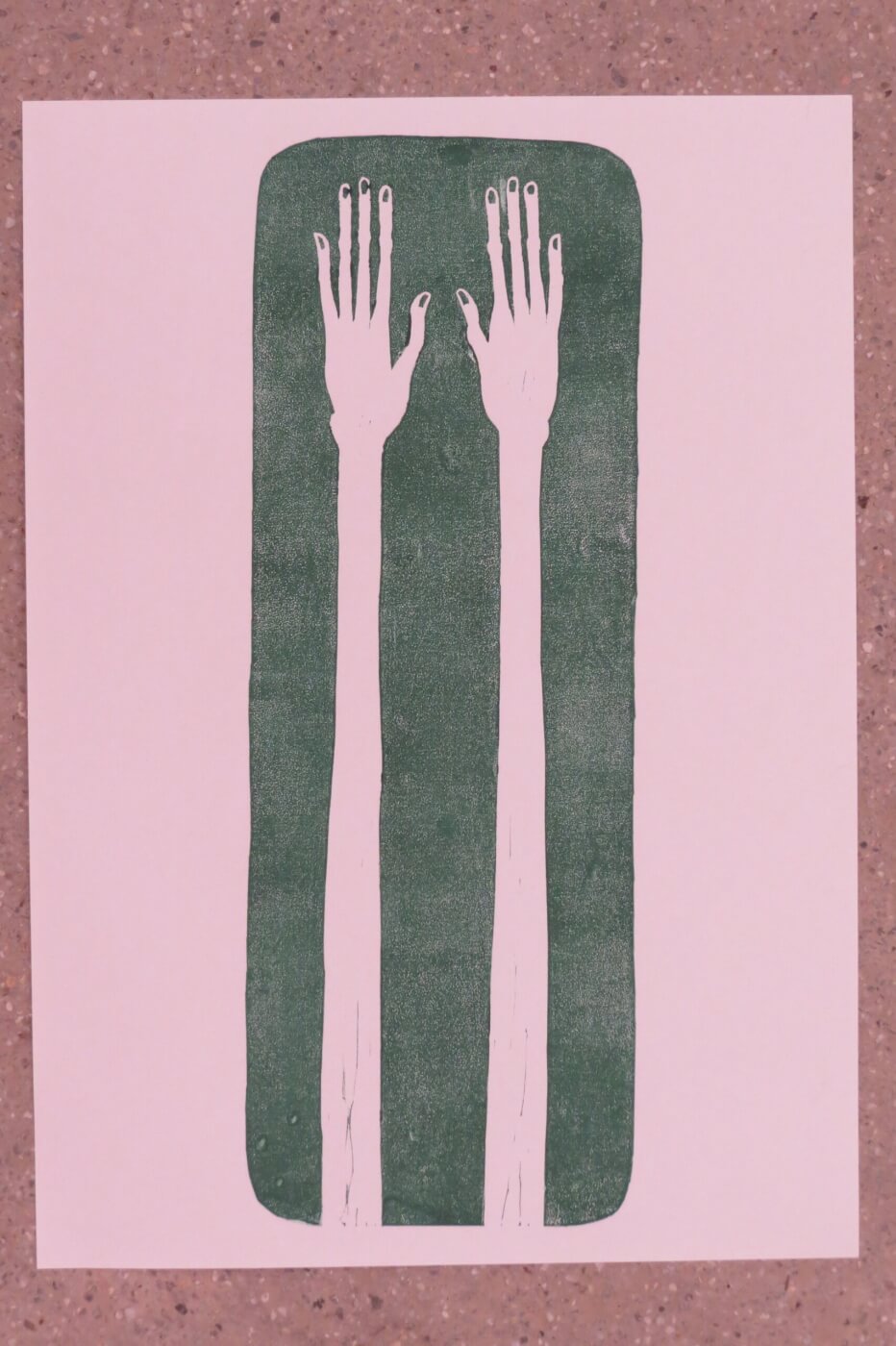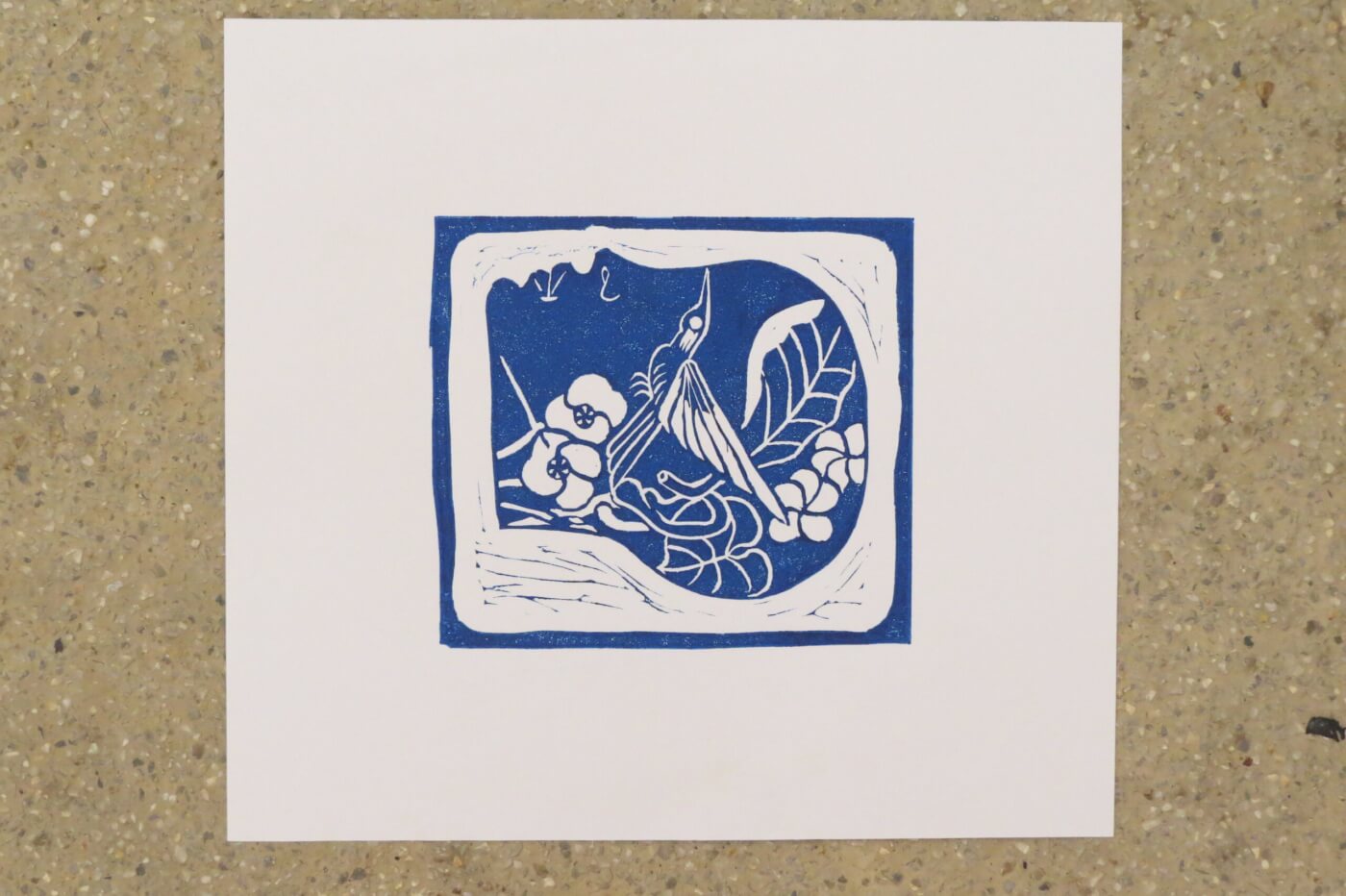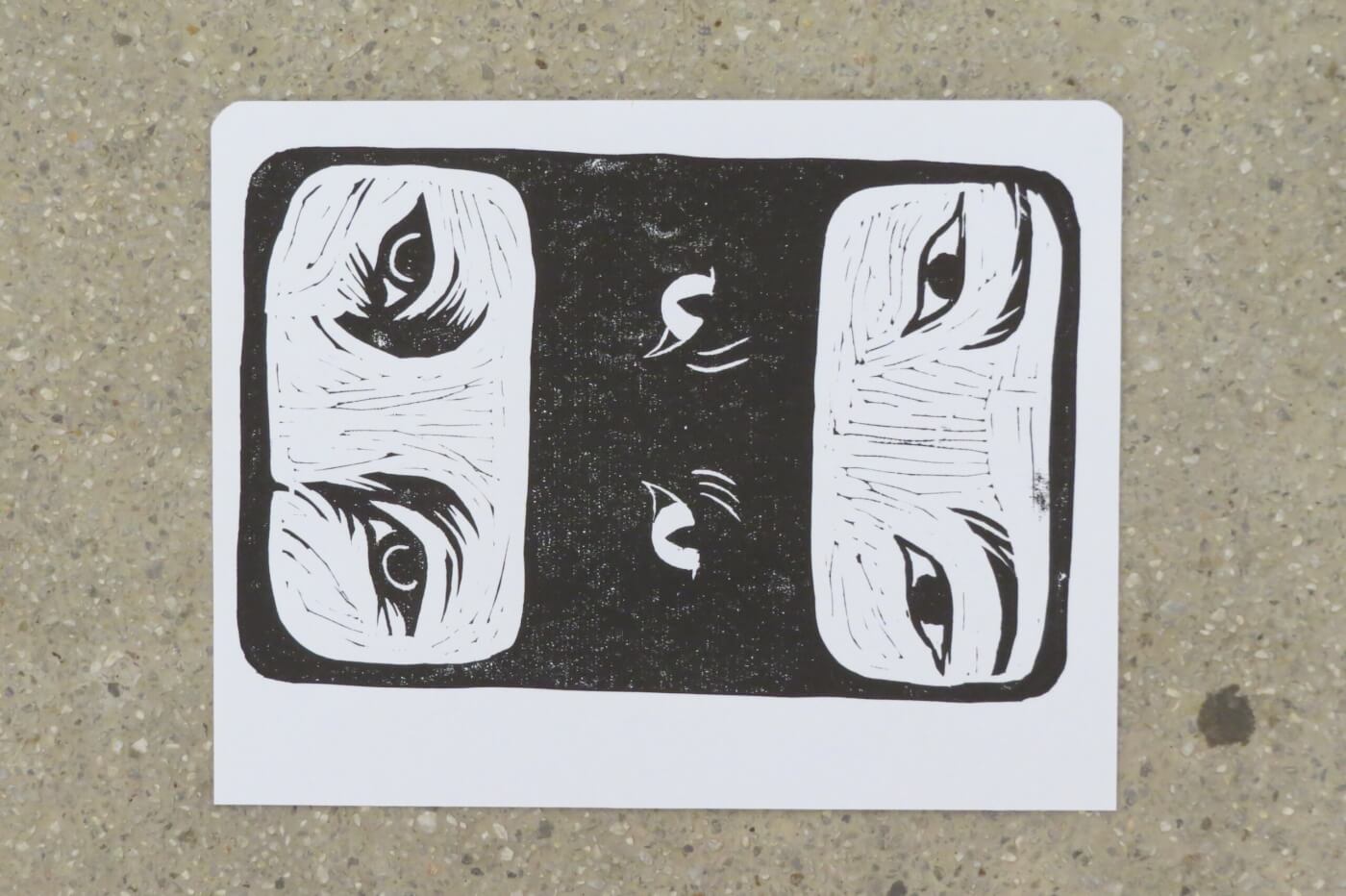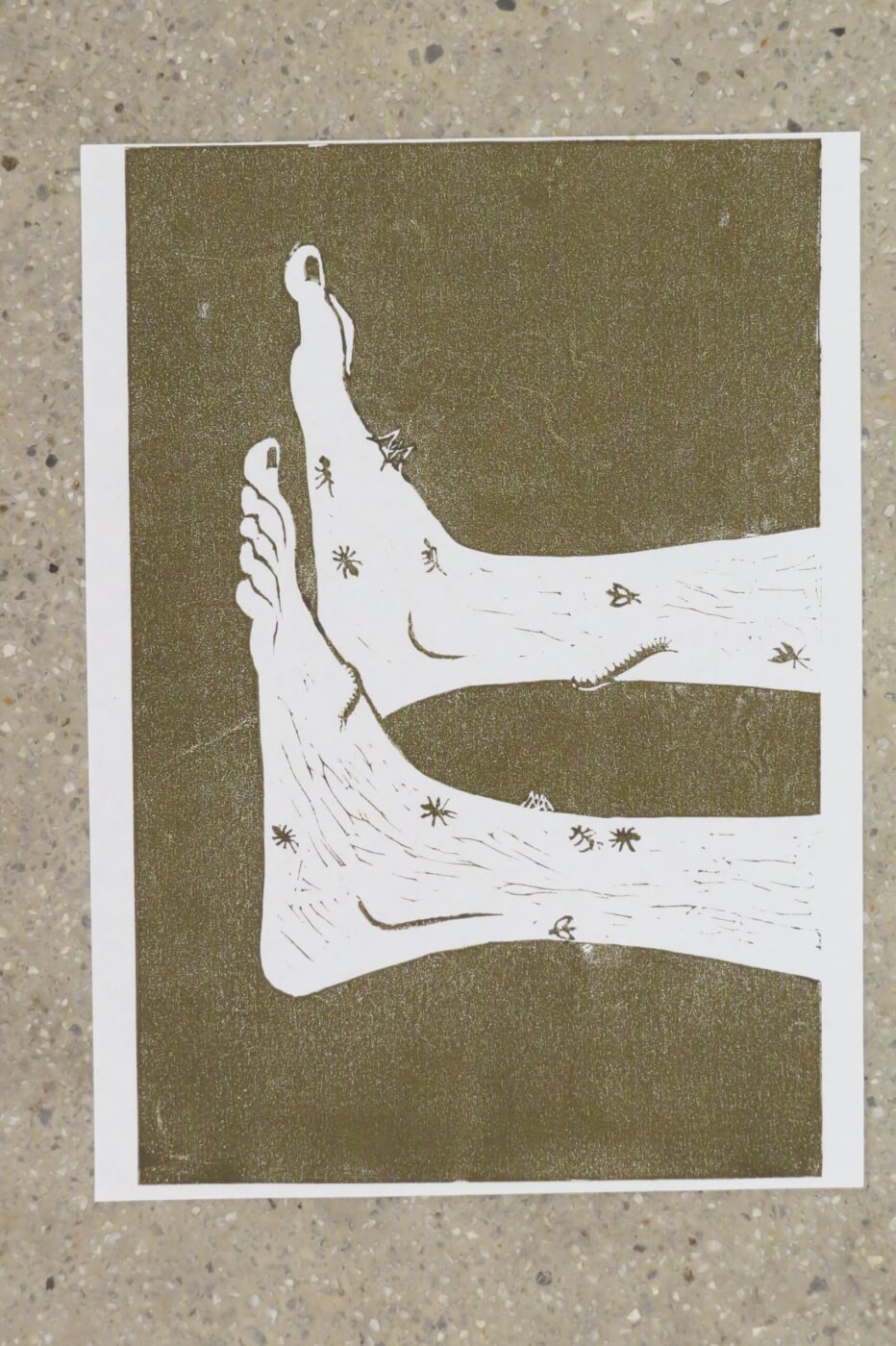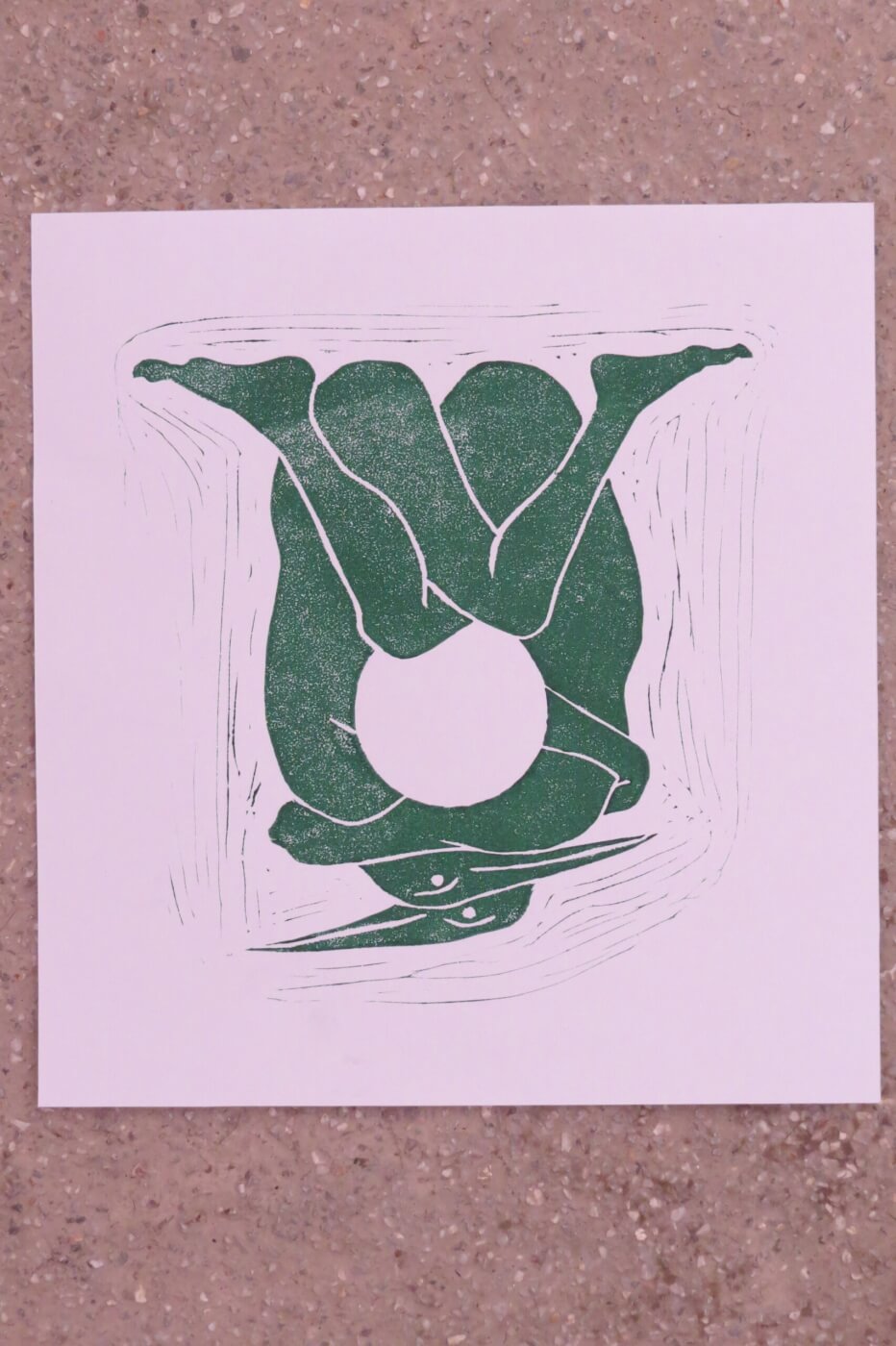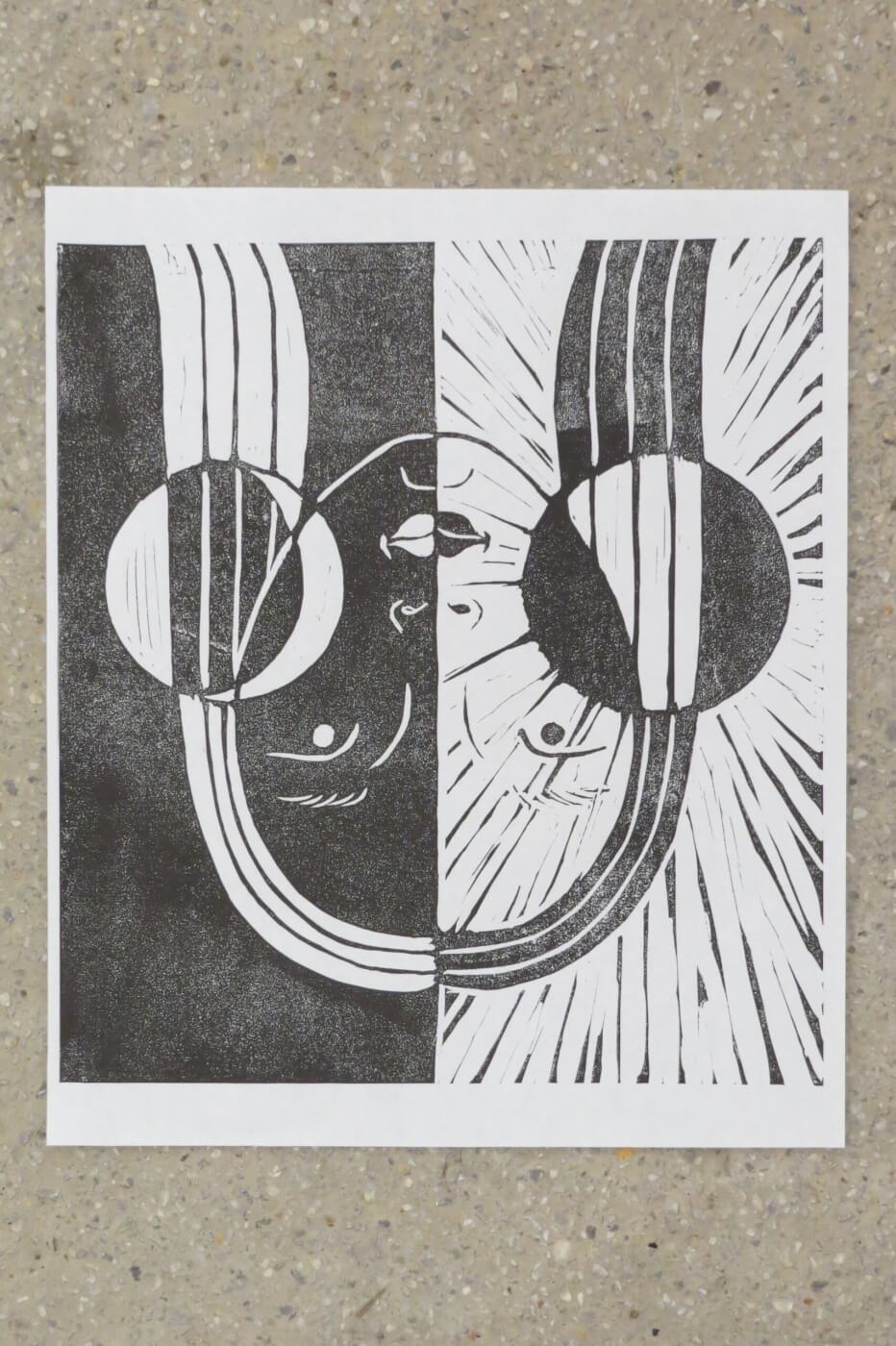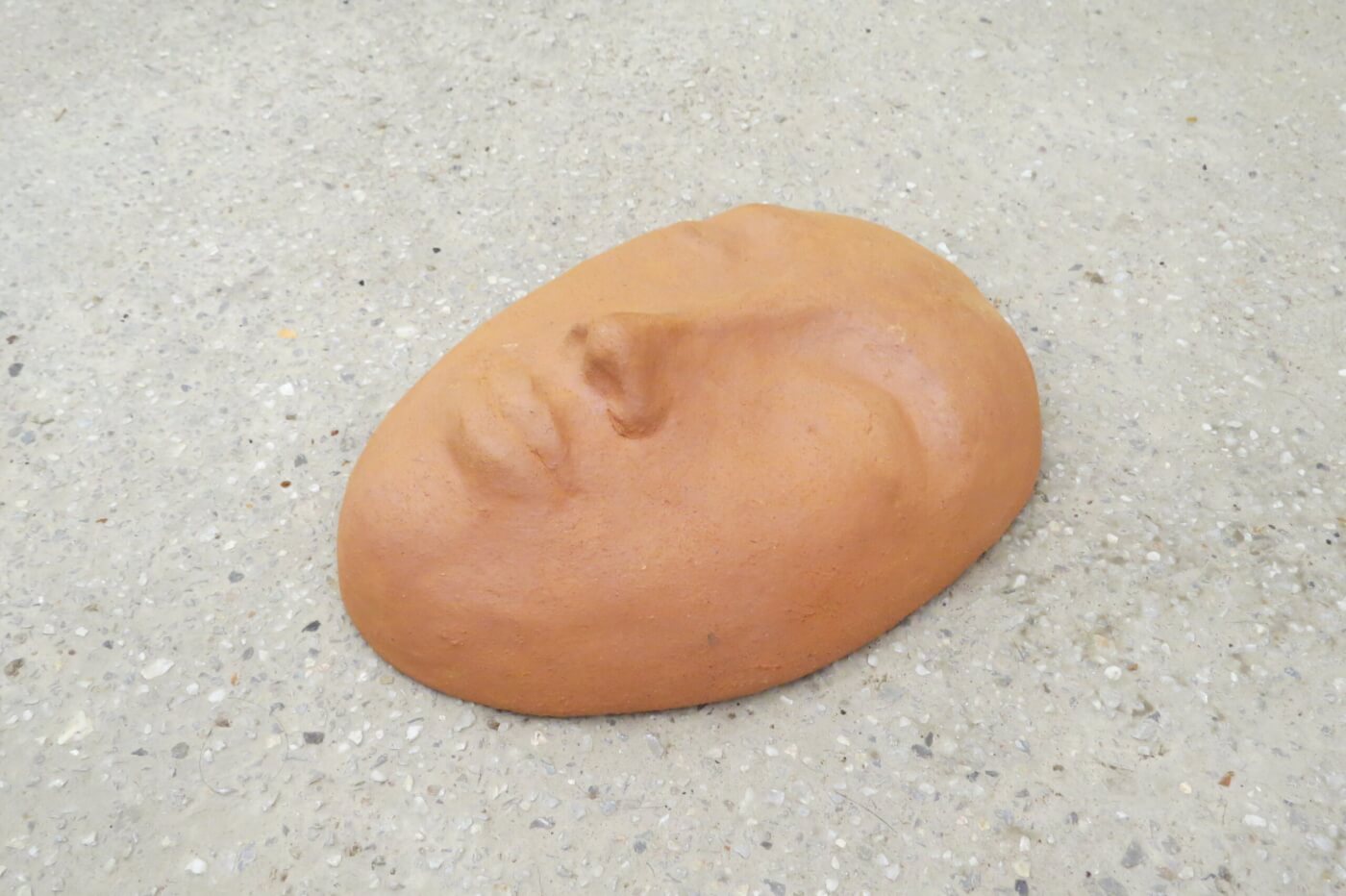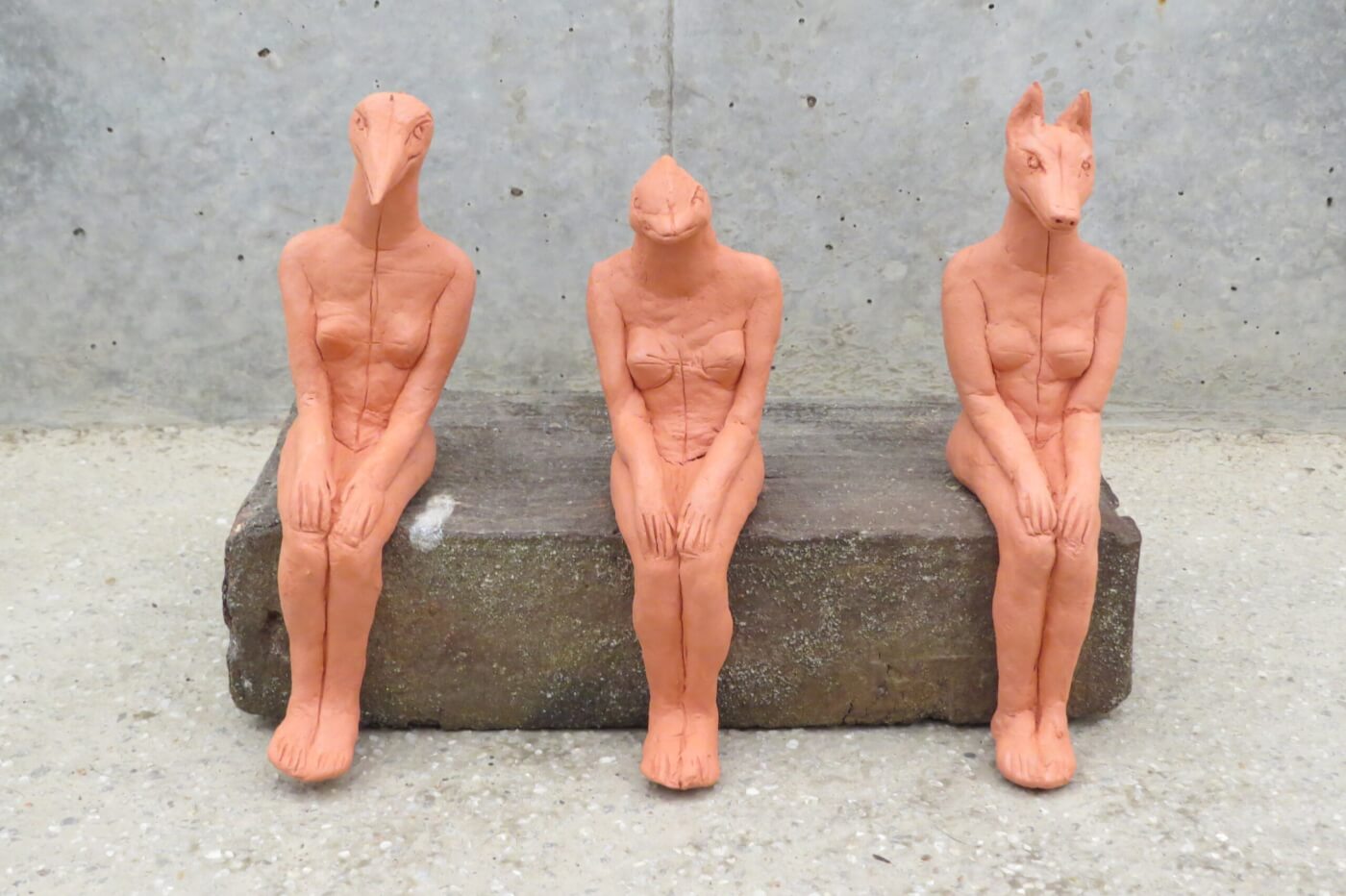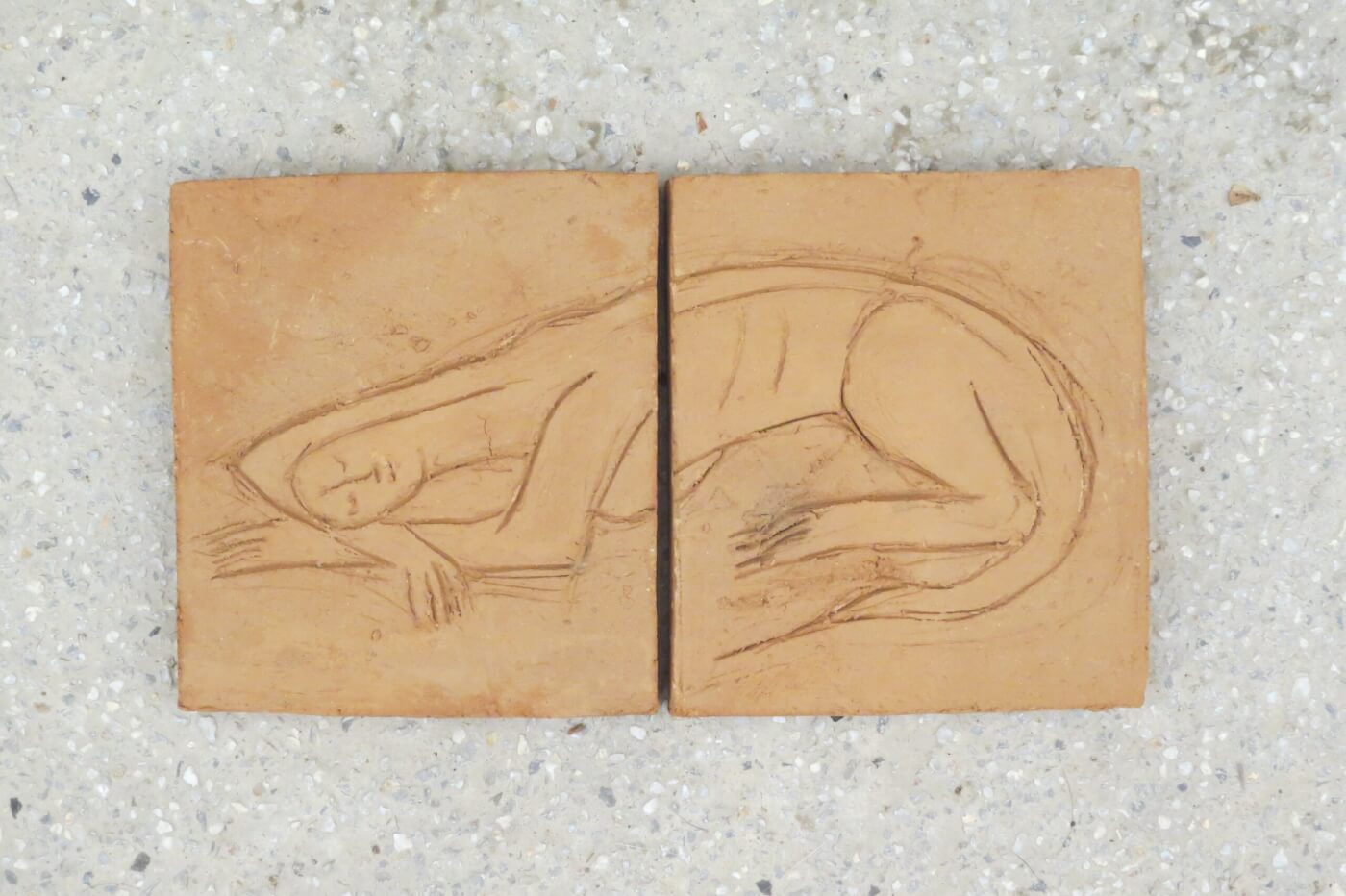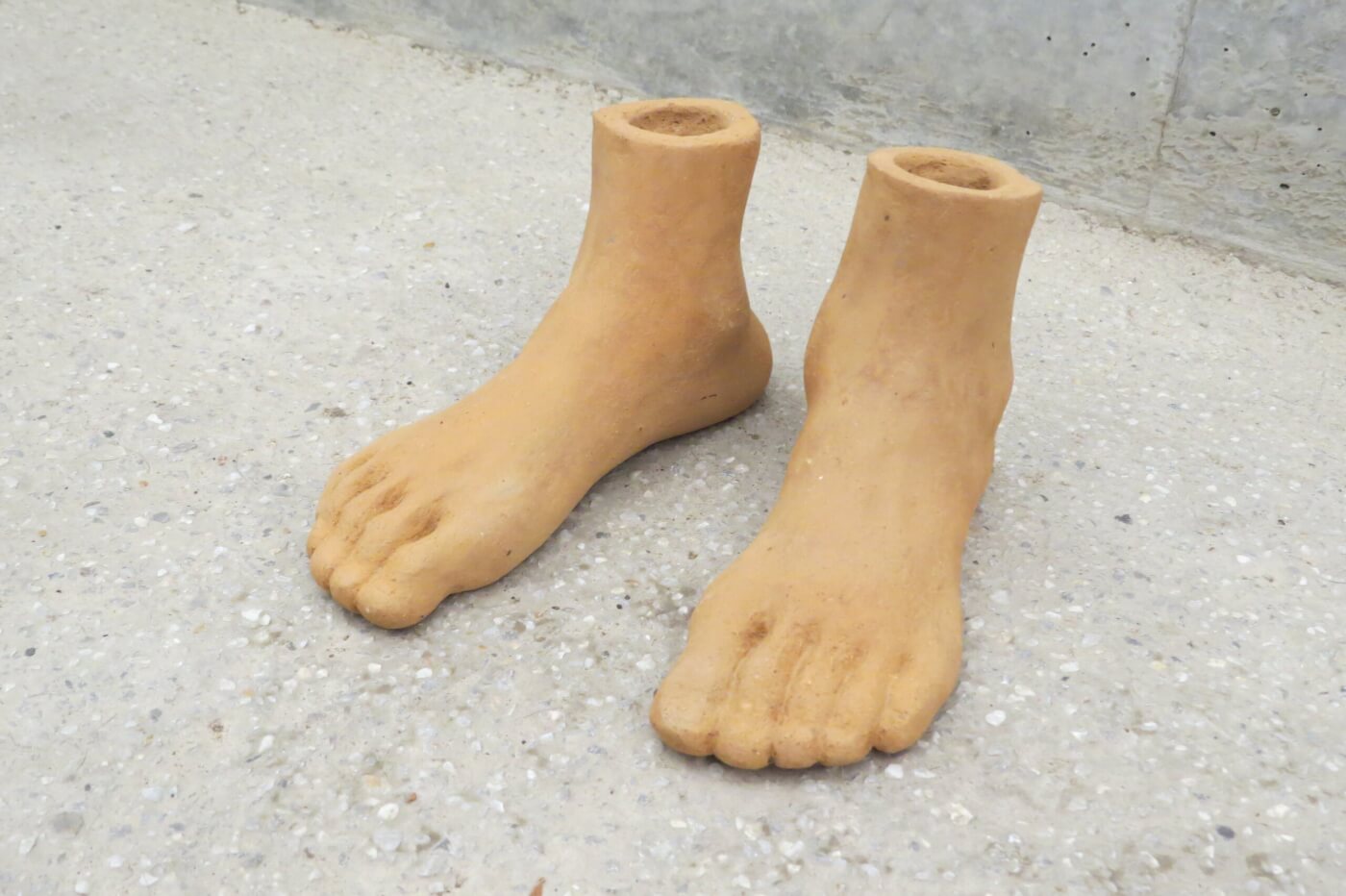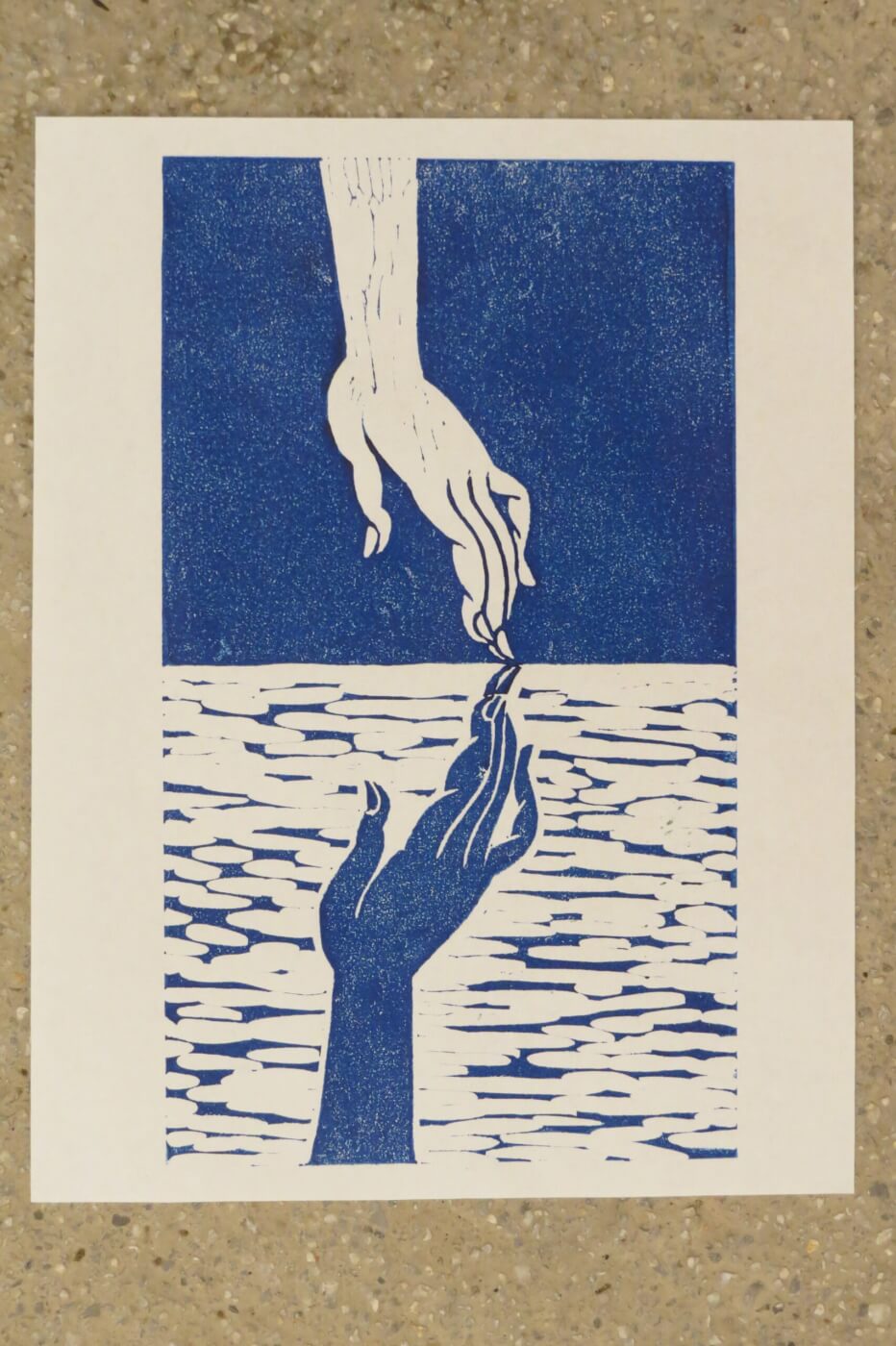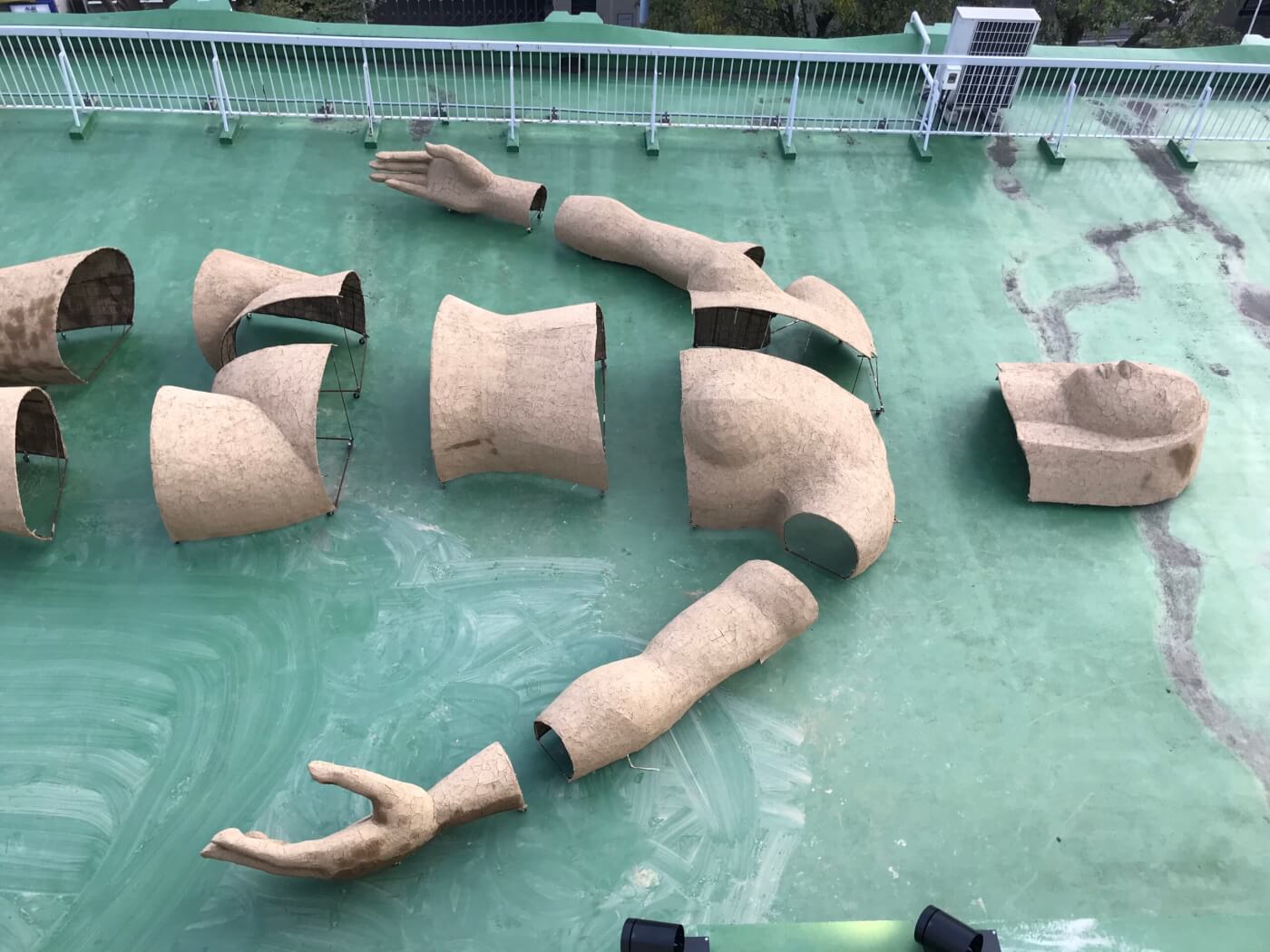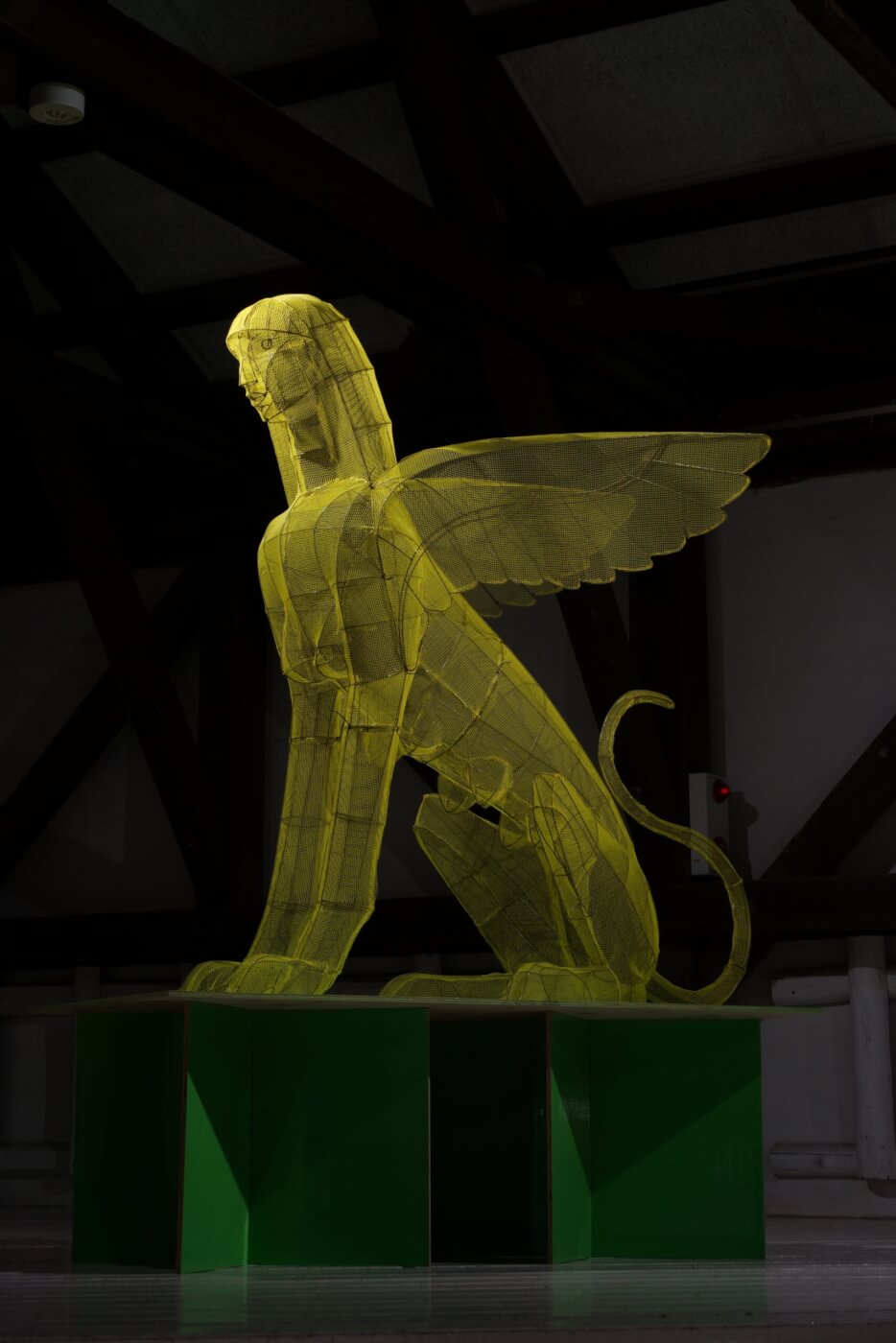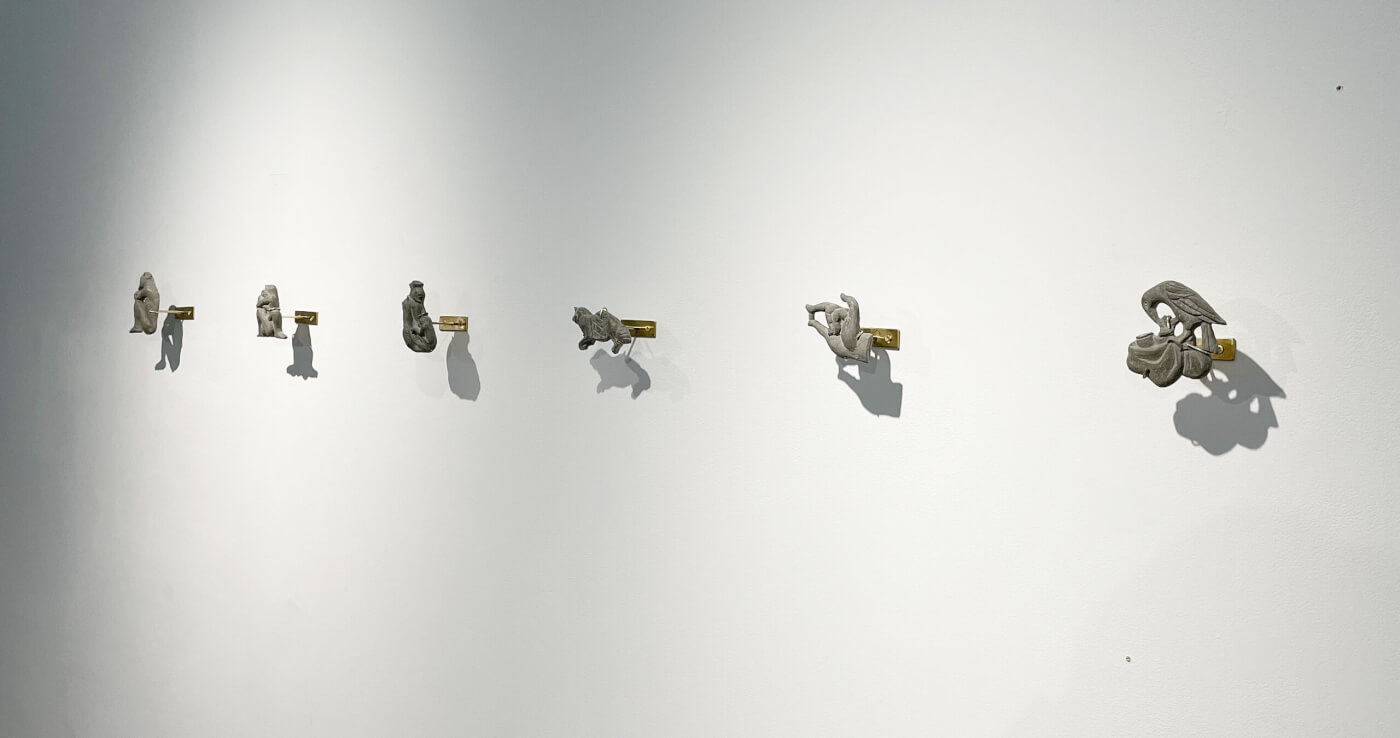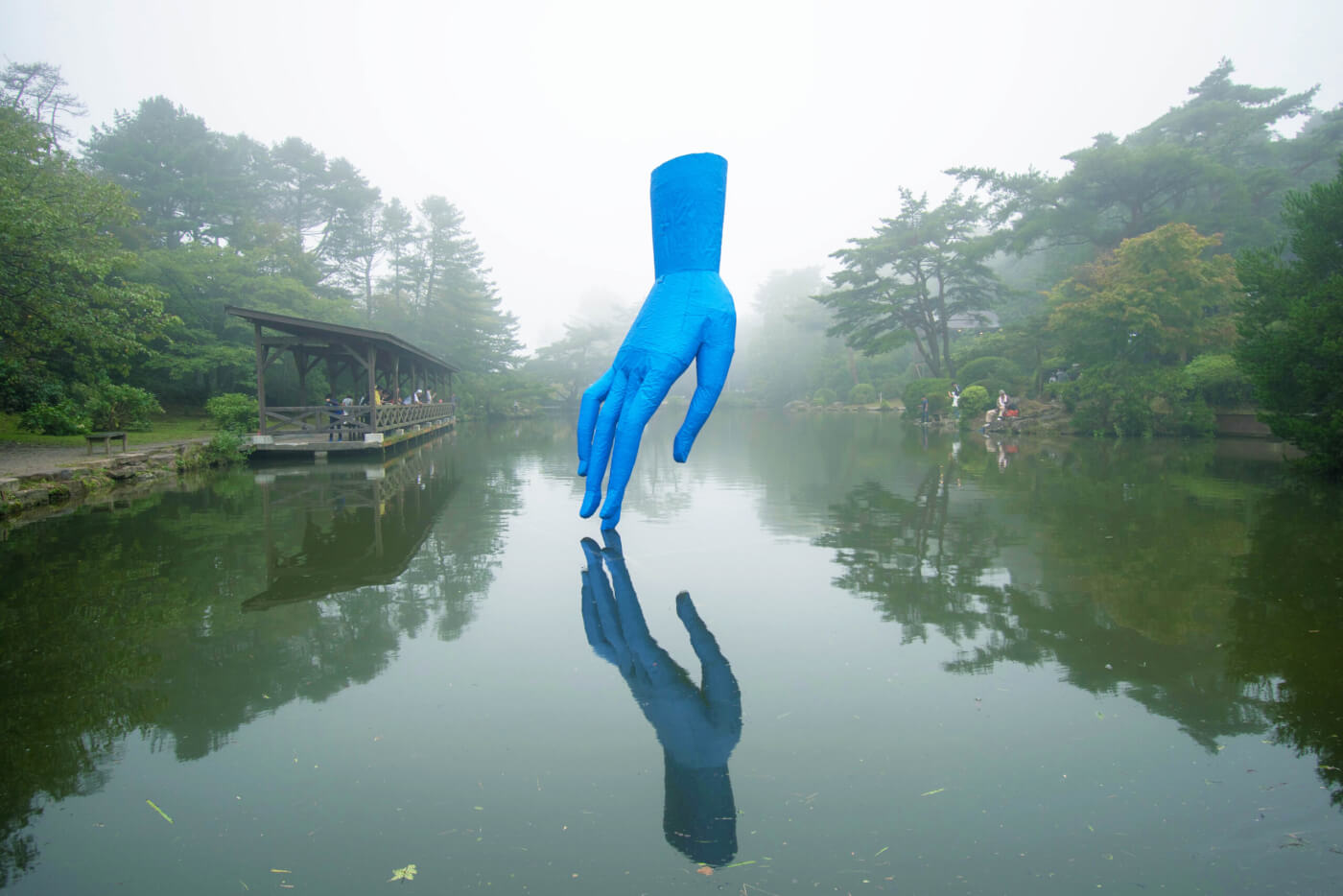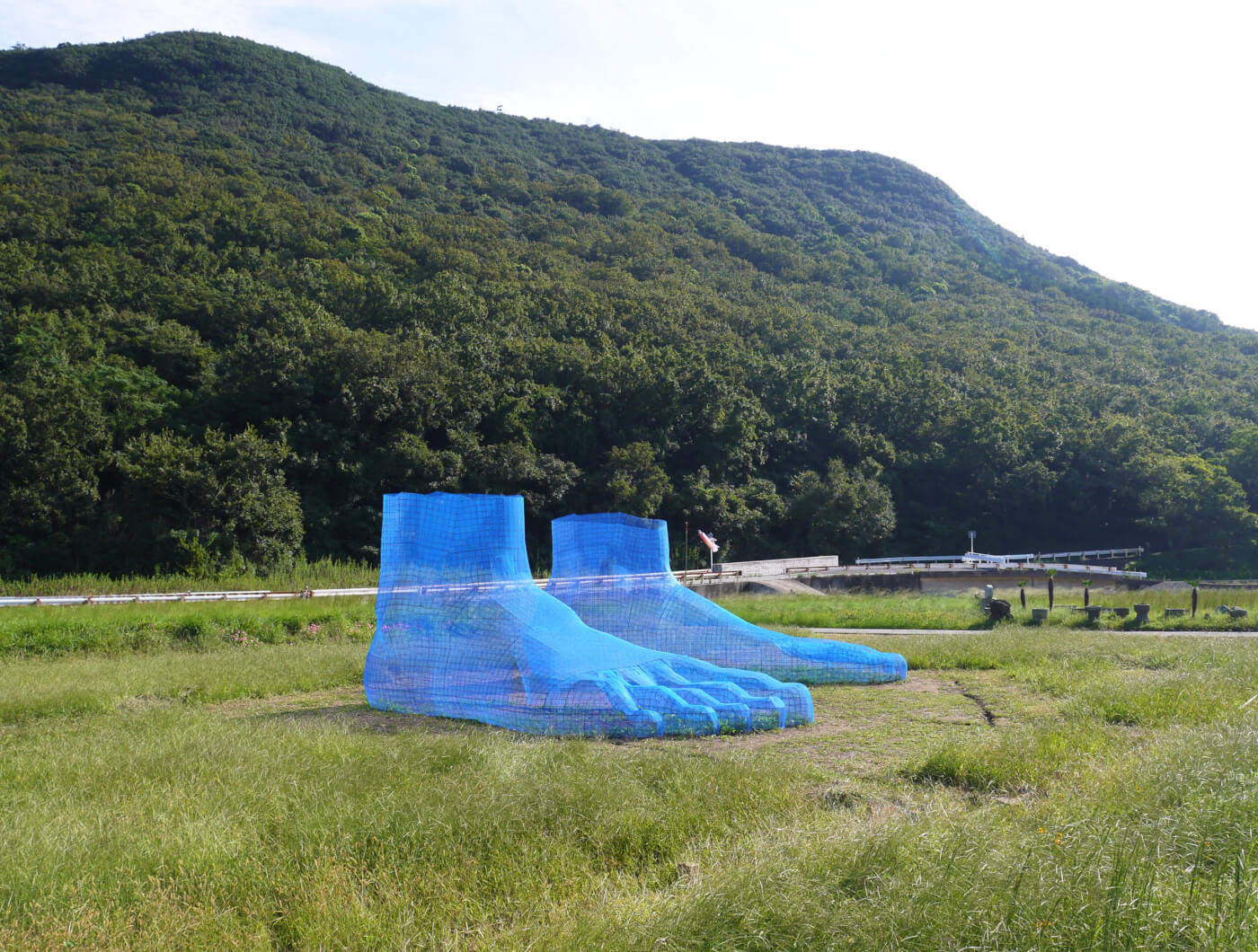Community Project
The Japanese technique of making personal seals (*hanko*) was shared with various university groups. After explaining the importance of this tradition among painters, illustrators, and ceramicists (among others) as a representation of personal identity, participants were inspired to draw and carve their own seal.
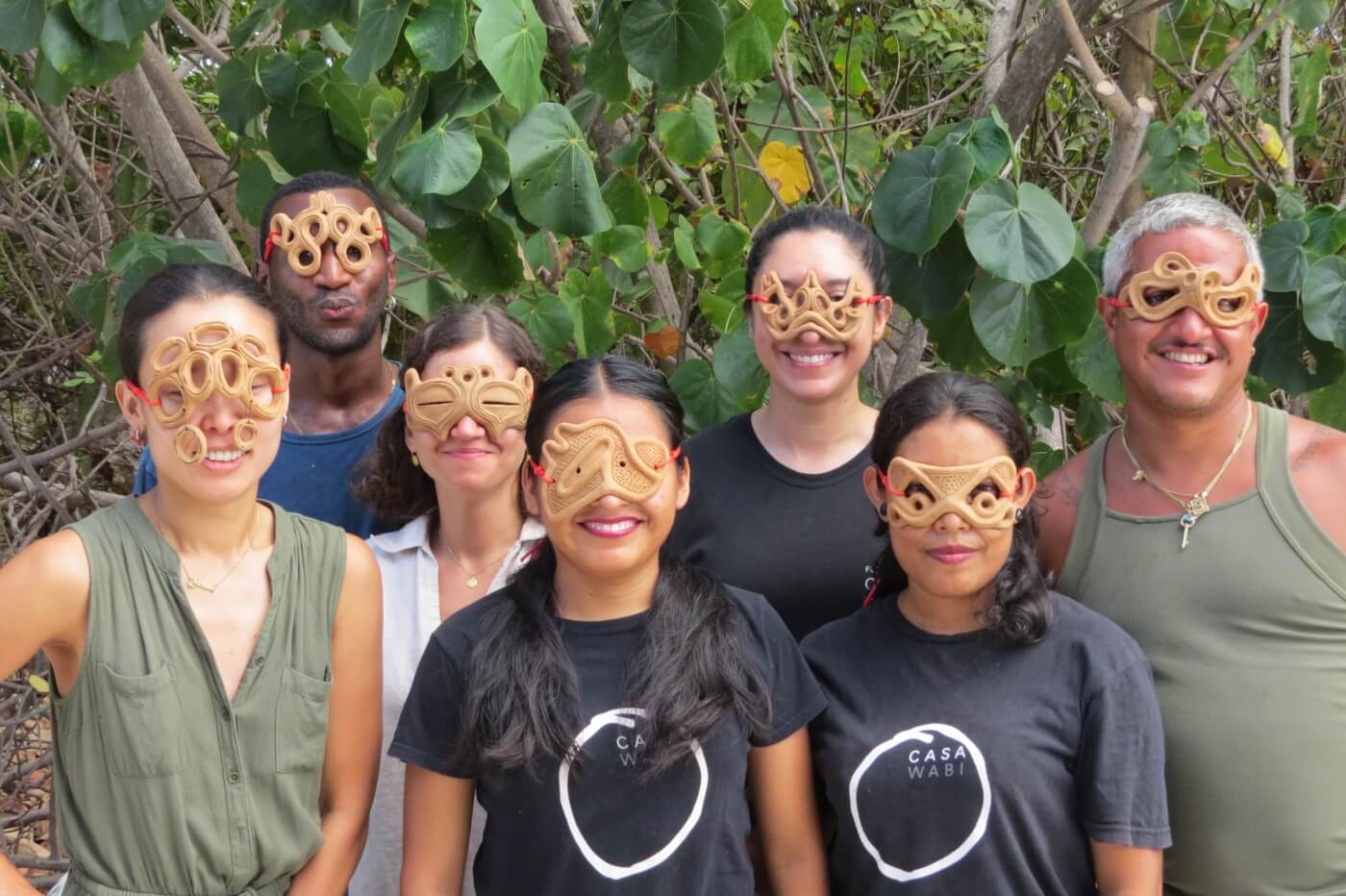
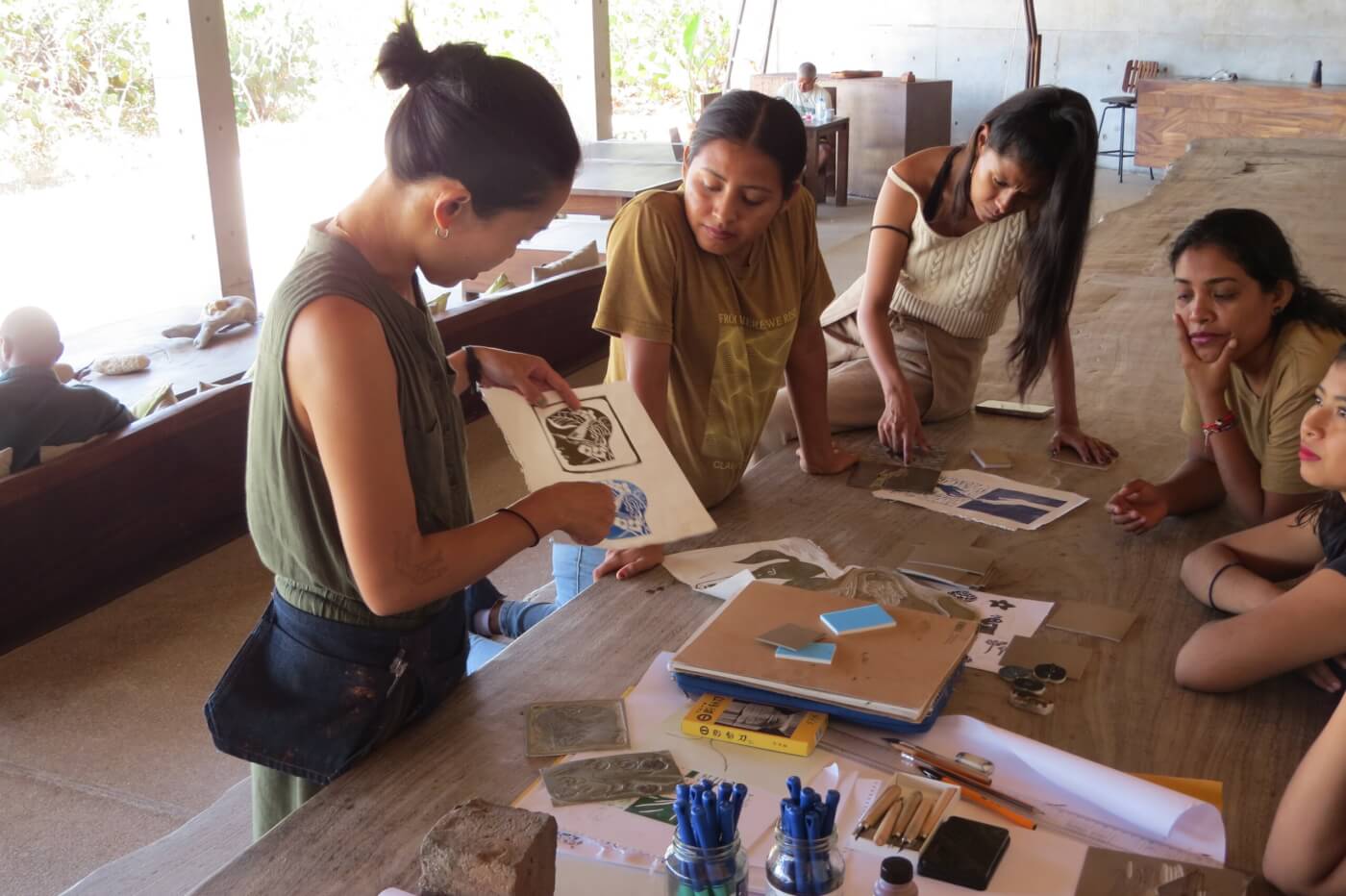
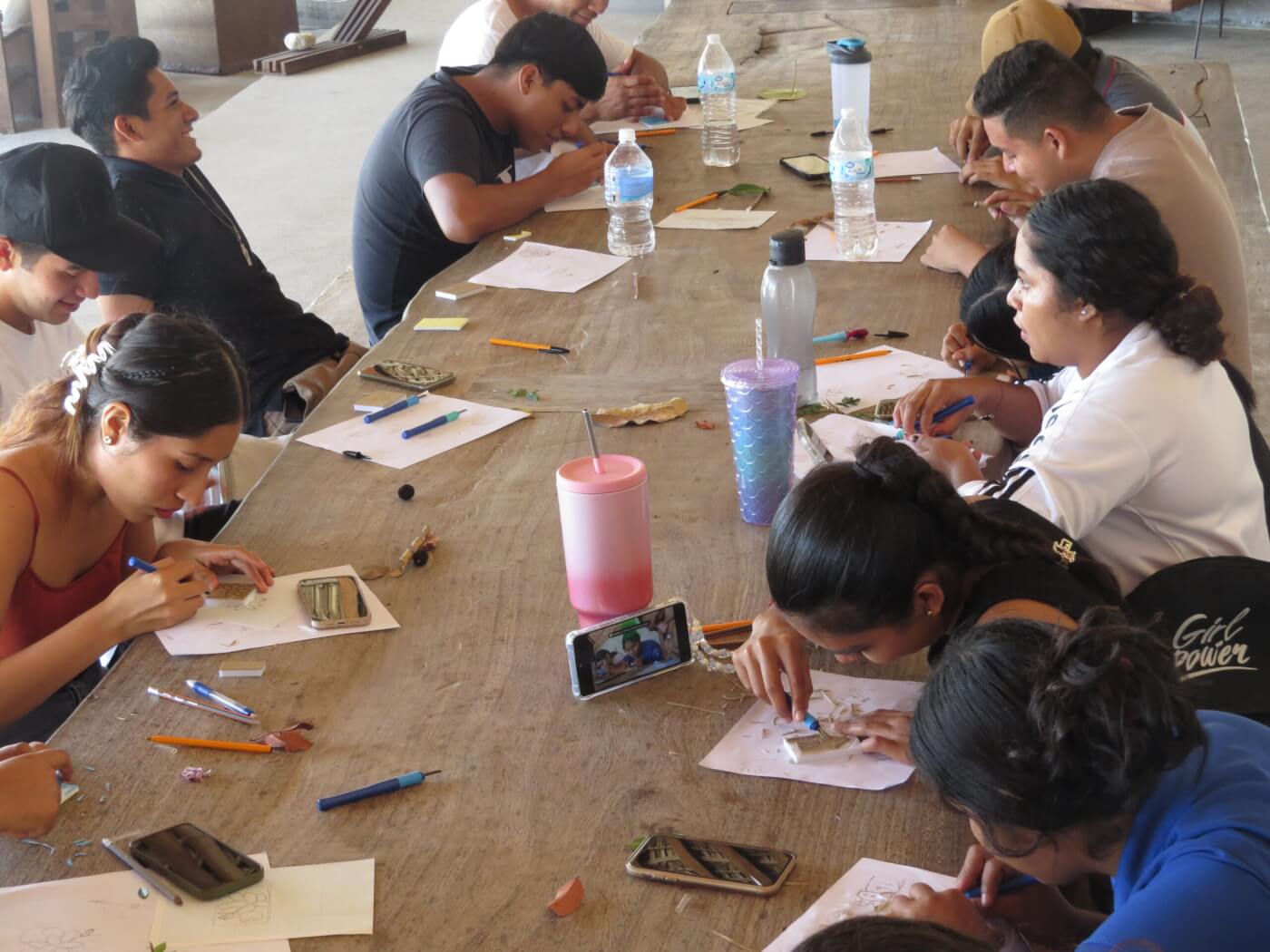
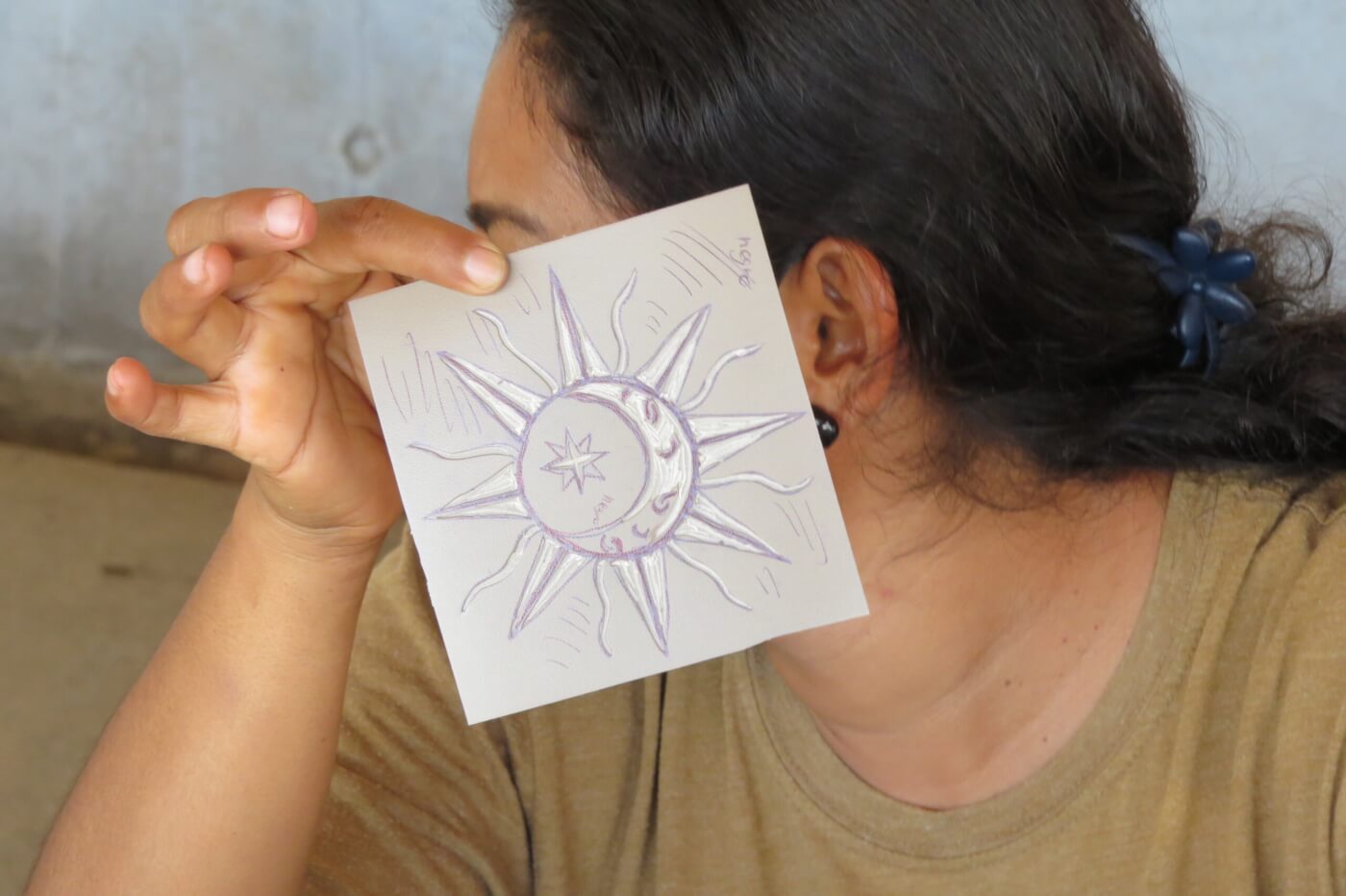
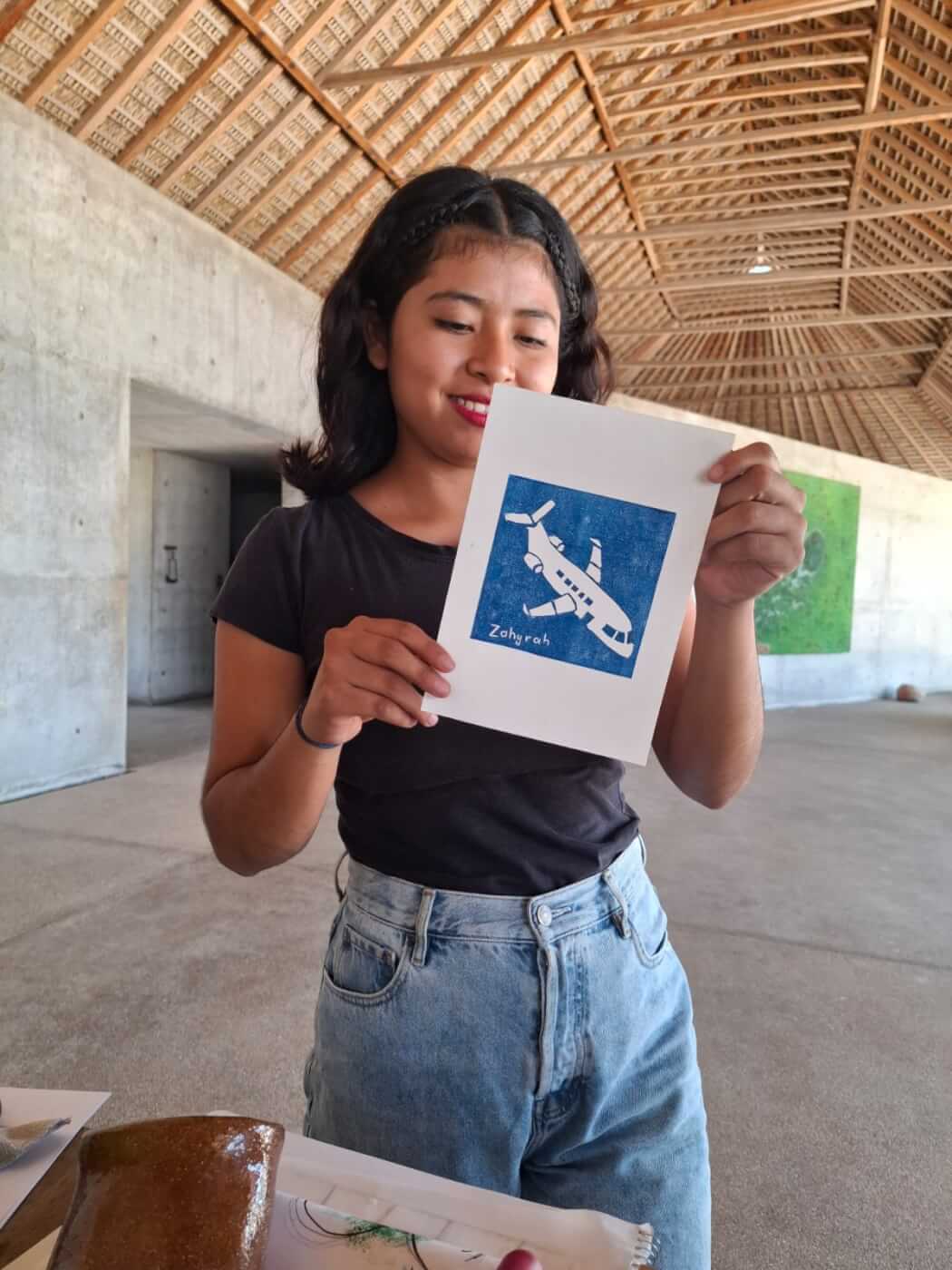
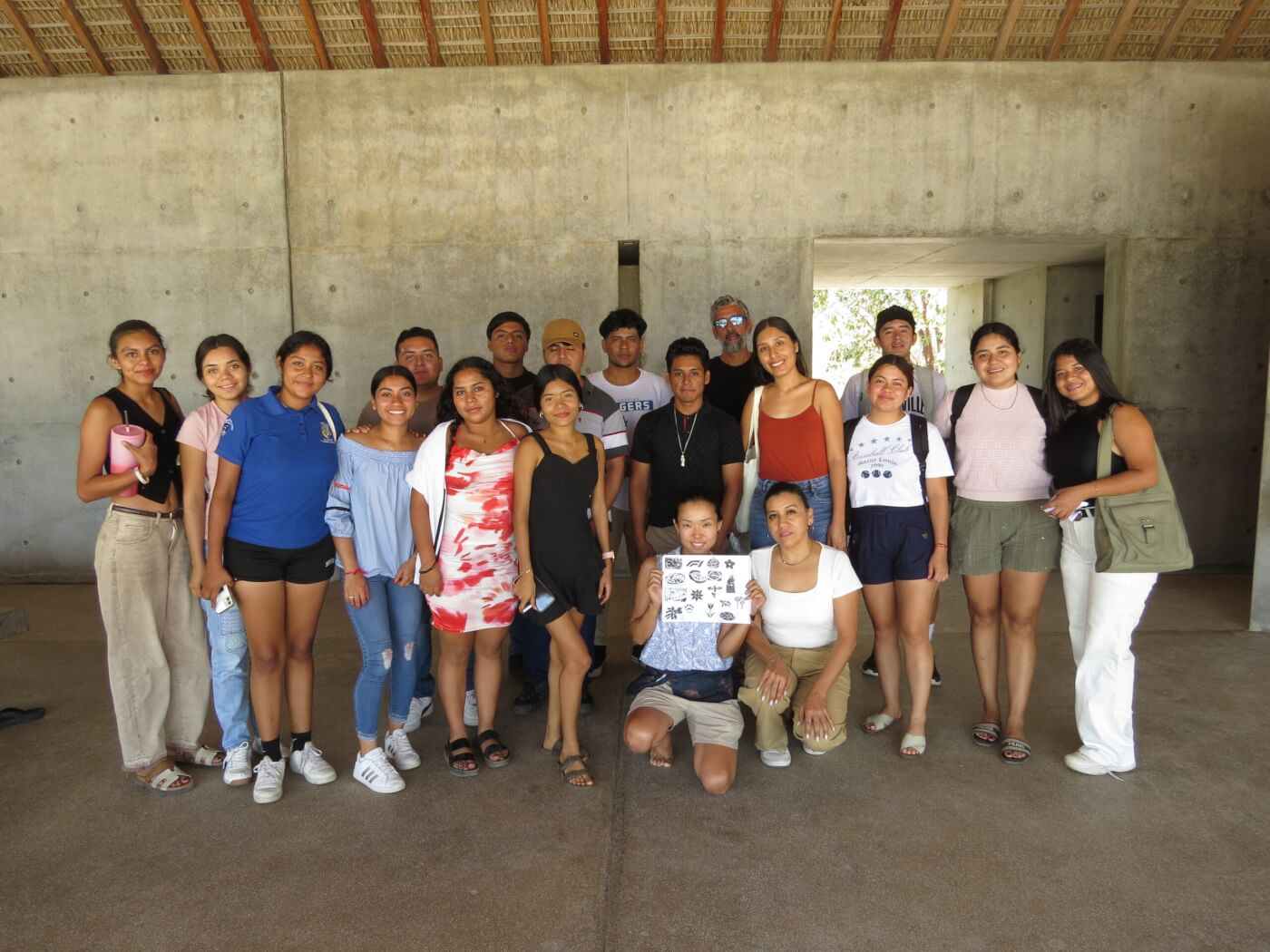
Japan
Hiroshima, 1987
Selected Exhibitions
Her solo exhibitions include *Steel Framed Goddess* at the POLA MUSEUM ANNEX (2024, Tokyo, Japan) and *ISAAC* at LOKO Gallery (2022, Tokyo, Japan). She has participated in group exhibitions such as the *Echigo-Tsumari Art Triennale 2024* (Niigata, Japan); *Go For Kogei 2023: Material Imagination and Etiological Narrative —Material, Data, Fantasy* at Fugan Canal Kansui Park (Toyama, Japan); and *The Romantic Route 3 Art Festival* (2023, Miaoli, Taiwan).
Kubo received her Master of Fine Arts from Texas Christian University in 2013. Based on her research into theories of prehistoric art, ethnic and folk art, and cultural anthropology, she creates sculptural works using agricultural materials such as wire mesh, tarps, and windbreak nets. Her themes include natural threats, the destruction and restoration of heritage, and the representation of marginalized women. Through her work, Kubo invites the application of contemporary perspectives to reflect on the images that give physical form to mythology and prayer, as well as on the beauty found in functional objects that arise from everyday life.
Her awards include the *Hiroshima Cultural Newcomer Award* (2022) and the *Grand Prize at Rokko Meets Art* (2017). Her large-scale works are part of the collections at KAMU Kanazawa (Ishikawa, Japan), the Chishima Foundation for Creative Osaka (Osaka, Japan), and Izak Co., Ltd. (Toyama, Japan).
Her solo exhibitions include *Steel Framed Goddess* at the POLA MUSEUM ANNEX (2024, Tokyo, Japan) and *ISAAC* at LOKO Gallery (2022, Tokyo, Japan). She has participated in group exhibitions such as the *Echigo-Tsumari Art Triennale 2024* (Niigata, Japan); *Go For Kogei 2023: Material Imagination and Etiological Narrative —Material, Data, Fantasy* at Fugan Canal Kansui Park (Toyama, Japan); and *The Romantic Route 3 Art Festival* (2023, Miaoli, Taiwan).
Kubo received her Master of Fine Arts from Texas Christian University in 2013. Based on her research into theories of prehistoric art, ethnic and folk art, and cultural anthropology, she creates sculptural works using agricultural materials such as wire mesh, tarps, and windbreak nets. Her themes include natural threats, the destruction and restoration of heritage, and the representation of marginalized women. Through her work, Kubo invites the application of contemporary perspectives to reflect on the images that give physical form to mythology and prayer, as well as on the beauty found in functional objects that arise from everyday life.
Her awards include the *Hiroshima Cultural Newcomer Award* (2022) and the *Grand Prize at Rokko Meets Art* (2017). Her large-scale works are part of the collections at KAMU Kanazawa (Ishikawa, Japan), the Chishima Foundation for Creative Osaka (Osaka, Japan), and Izak Co., Ltd. (Toyama, Japan).

